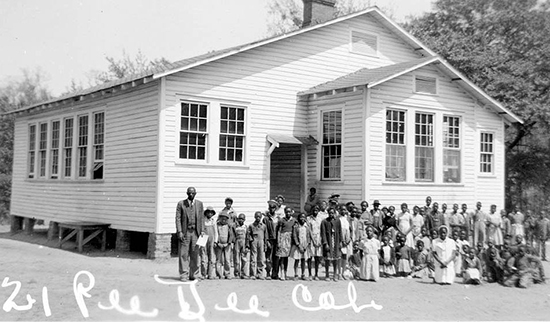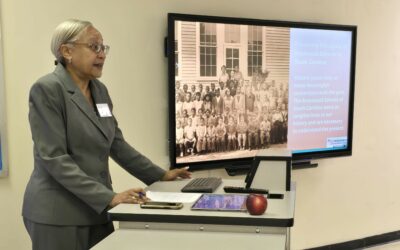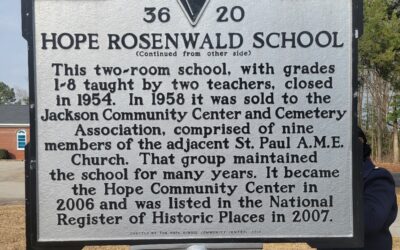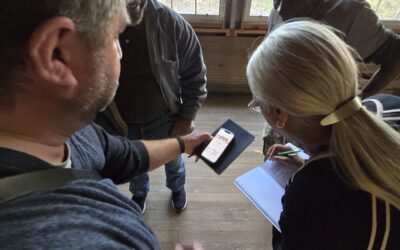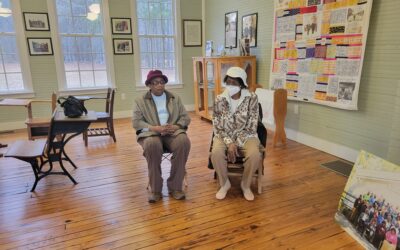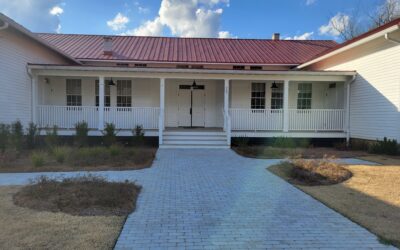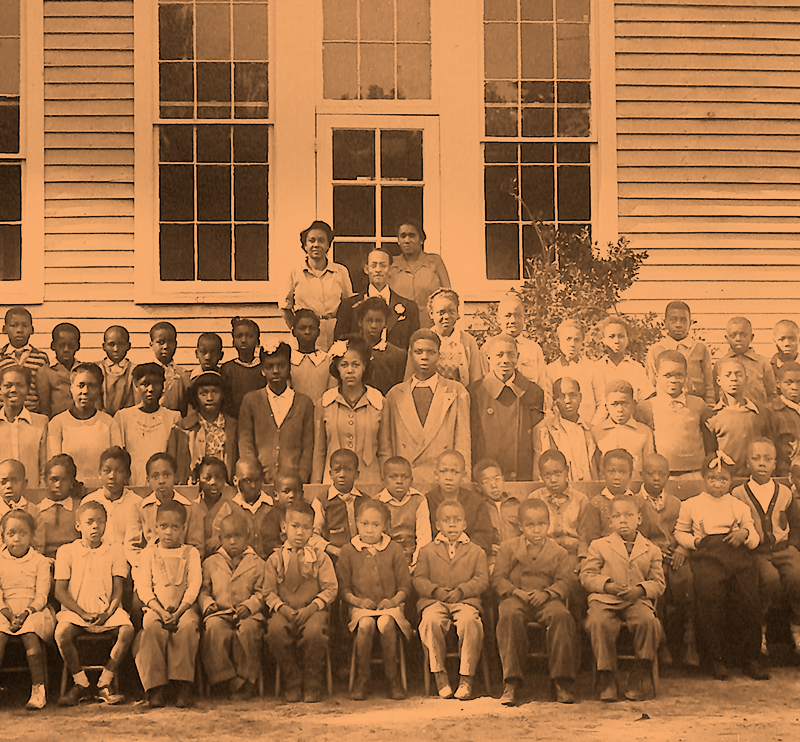
ROSENWALD SCHOOLS TRAIL STUDY:
Preserving the Legacy of Rosenwald Schools in South Carolina
Historic places help us make meaningful connections with the past. The Rosenwald Schools of South Carolina serve as tangible links to our history and are necessary to understand the present.
Preserving History, Protecting Land
In the early twentieth century, many African American schools in the South were in poor condition and barely habitable. Inspired by the time he spent with Booker T. Washington in Alabama, Julius Rosenwald, a Jewish philanthropist from Chicago, contributed funds to the construction of thousands of new African American schools across the south, including hundreds in South Carolina. Rosenwald Schools improved educational opportunities for African Americans within the restrictive context of Jim Crow laws. A few dozen remain today in the Palmetto State, and they stand as tangible reminders of our past and continue to serve as places of pride, education, and service in their communities.
Many Rosenwald School communities in South Carolina have worked hard to repair and rehabilitate their Rosenwald Schools. The renovation of the Hope (Pomaria), Pine Grove (Richland County), and St. George schools are preservation success stories. Others in Lincolnville, Ruffin, and Seneca have served their communities continuously in other ways long after their time as schools ended.
Today, the legacy of Rosenwald schools is at risk. With fewer than 100 still standing, these structures, once symbols of community pride and educational resilience, face neglect and potential ruin. The state’s rapid population growth puts them in the crosshairs of suburban development, demanding urgent action for preservation.
Protecting Rosenwald Schools and the land they occupy broadens the impact of conservation efforts by protecting cultural and historical landmarks that have been overlooked and under-invested in by traditional land protection efforts.
All land tells a story, and the story of Rosenwald Schools is one that deserves to be told and protected.
Bridging Past and Future
The WeGOJA Foundation works to document and promote African American heritage sites in South Carolina and is undertaking the Rosenwald Schools Trail Study (RSTS) to determine which Rosenwald School sites could become South Carolina’s first state park focused on African American and Jewish history. The study is a collaborative effort of the Conservation Voters of South Carolina, the South Carolina Department of Parks, Recreation and Tourism, the South Carolina Department of Archives and History, and Rosenwald preservation organizations across the state.
An oral historian and master planner team will initially focus on six sites, engaging with alumni and community stakeholders, assessing site integrity, and designing a plan that shares this important history with the public. The study will produce a Rosenwald School Master Plan, with recommendations on implementation, including a branding package and detailed report.
The St. George Rosenwald School will be used as a model site. This location will have a more in-depth community engagement strategy that will include the creation of a Master Plan for the School Site that will highlight the school’s history, educate visitors, and provide a connection to the surrounding community.
Are you part of a Rosenwald School organization? Did you attend a Rosenwald School? The Rosenwald Schools Trail Study would like to engage with you to tell the story of your school and your educational experience. Complete the form below for more information and check the box to receive the WeGOJA Foundation Newsletter.
“This is an important story that should be told to future generations. Rosenwald history is South Carolina history, and the schools have shaped and influenced so much of the South Carolina we know and love today.”
– Charlotte Holt, Former Teacher of the New Hope Rosenwald School
Project Updates
RSTS Presents at the Landmark Conference 2024
by Timika M. Wilson From Vision to State Park: A study of Rosenwald Schools will help determine the viability of a new historic trail. Speakers, Timika Wilson, Dr. Larry...
Team Site Visit to The Hope Rosenwald School
by Holley Owings & Tripp Muldrow The Earth Design team traveled to the rural community of Pomaria in Newberry County, SC on its initial site visit to The Hope Rosenwald...
Team Site Visit to the Mt. Zion Rosenwald School
by Holley Owings and Tripp Muldrow Earth Design, alongside Dr. Val Littlefield and the WeGOJA Foundation recently conducted a visit to the historic Mt. Zion Rosenwald School...
Site Visit at Great Branch School and Teacherage in Orangeburg
Rosa Kennerly-Dance is the point of contact for the Great Branch Rosenwald School (1918) and Teacherage (1923). Her passion and commitment is infectious. Earth Design, Inc…
Project Team Visits Pine Grove School
by Holley Owings and Tripp Muldrow Ms. Brenda McGriff along with school alumni and a representative of the Richland County Recreation District welcomed the Earth Design team...
Earth Design Team Explores St. George Rosenwald School’s Rich Heritage
by Holley Owings and Tripp Muldrow In a recent exploration of St. George, SC, the Earth Design team embarked on a comprehensive tour of the historic St. George Rosenwald...

